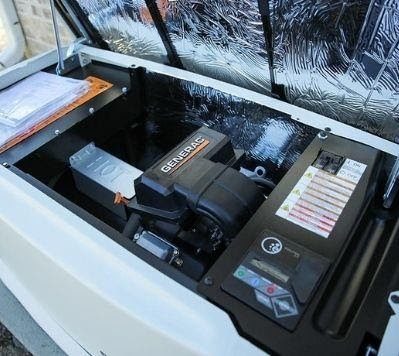Backup Power for Severe Weather
Are you prepared to go several days without electricity?
For many, unfortunately, the answer may be no. Missourians know that severe weather is a year-round threat in the Midwest. From winter snow and ice storms to spring tornadoes and summer thunderstorms and flooding, many have experienced the harsh realities of power outages from electric and natural gas utilities.
Whether caused by storms, natural disasters or some other factor, the loss of grid power can happen at any time. The cost of being unprepared can be significant since power outages can cause many more problems than just not being able to turn the lights on. They can impact essential home systems including smoke and fire alarms, refrigeration units, heating and cooling systems, health and safety equipment, and work technology.
Sunrun Inc., a leading provider of residential solar, battery storage, and energy services, recently released a study that found COVID-19 increased energy consumption for most homeowners.1 Increased energy consumption causes unique challenges in the event of a power outage, especially those who have made the permanent switch to remote work.
According to the survey, 57% of homeowners say they want to make home improvements, and this includes nearly 40% who have a growing interest in backup power sources. This greater interest in reliable backup power creates new opportunities for homebuilders, construction pros and homeowners considering upgrades that increase their energy security. Along with having a severe weather plan in place, adding a backup generator can keep your family safe in the event of an outage.
Propane backup generators offer benefits that other fuels simply can’t match, making it the ideal fuel choice for backup power to weather-proofing a home. A propane standby generator offers quiet power, efficiency, safety, and dependability. Plus, propane’s indefinite shelf life makes it an ideal fuel for standby power. Unlike gasoline or diesel which degrade over time, propane does go bad or expire. Additionally, propane is non-toxic, non-poisonous, and won’t contaminate soil or water like other liquid fuels. Propane also produces fewer emissions than gas or diesel, making it a low-carbon choice.
Propane backup generators power on automatically within ten seconds or less when a power grid failure occurs. In addition to helping weather-proof homes, propane generators also operate quietly, producing as little as 60 decibels of noise. That’s comparable to a normal conversation. With an adequate supply of fuel, propane generators can handle an entire home’s energy needs for days.
Because of propane’s energy versatility, this American-made fuel can also power other major energy systems and appliances throughout a home. Additional propane appliances are a benefit when it comes to choosing a backup generator. With fewer electric appliances drawing on the system, homeowners can install a smaller, more affordable propane backup generator while still having plenty of power to spare.
A propane backup generator can be powered by the same propane tank that’s already supplying your home. If you aren’t a current propane customer or are doing a remodel, a separate tank is an option.
Source
